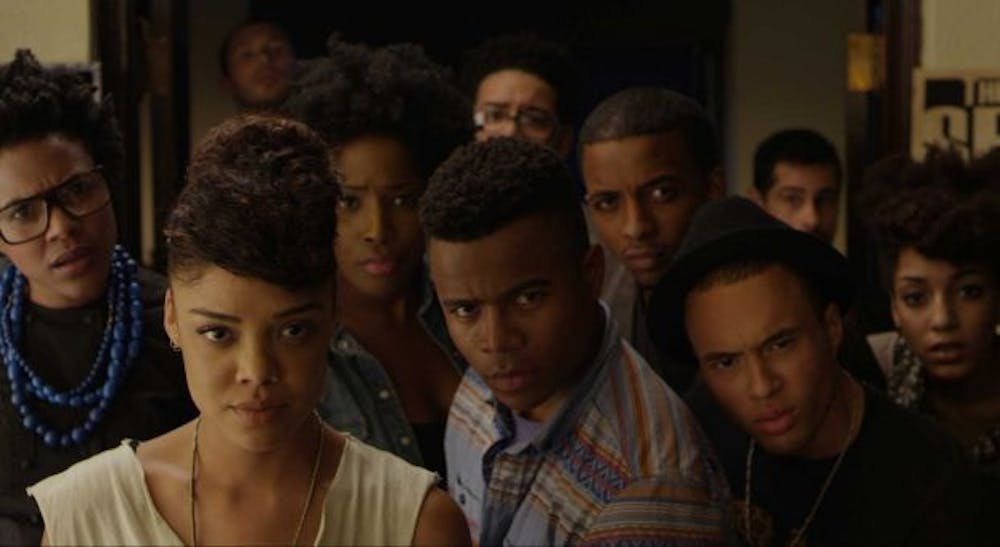By Brooke Schmidt
Staff Writer
“Dear White People” is a very divisive film, but it’s one that we need now more than ever due to its polarizing but satirical take on an urgent topic. Focusing on four African-American students at a predominantly white Ivy League school, the film attacks everyone with a satirical gaze. It makes fun of people who are too quick to blame everything on racism, people who deny racism still exists, people who perpetuate the stereotypes and people who recognize its presence but won’t do anything to fix it.
In “Dear White People,” the four main characters are Sam White (Tessa Thompson), Troy Fairbanks (Brandon P. Bell), Lionel Higgins (Tyler James Williams) and Colandrea ‘Coco’ Conners (Teyonah Parris). Each character represents a different stereotype that black people face: the overly radical activist, the popular guy who gets along with everybody, the nerd and the preppy queen bee who wants the spotlight. Why does the film highlight these characters? They are all involved, in some way, with the heinous “ghetto” themed party held on their campus.

In Feburary 2010, the University of California-San Diego held a “ghetto-themed” party. Yes, you read that right. They had a party where they told people to come as their personal depiction of what it means to be “ghetto.” At this party, there were copious amounts of people in “blackface” – where they painted their faces to look dark-skinned – and had stereotypically African-American themed cocktails and drinks. That may sound like something straight out of the 1950s, but such parties happened at several well-known universities throughout the next few years, such as Penn State and Dartmouth.
The aforementioned party was displayed on screen, and it was one of the most repulsive scenes on film this year. Before then, I didn’t think anybody could be so racist today, but the blackface and grills adorned by these privileged Ivy League students proved otherwise. The crux of the film focuses on the mystery of who was involved in the party. As it turns out, everyone in their own way supported or influenced the party through subtle means or more conniving strategies. Related to this issue, the filmmakers touch on the oversight and nonchalance of school administrations in regard to important issues. After the past few years of administrations being called into question about issues of sexual misconduct and race relations, this topic has never been more relevant.
These four students are the center of the film as they interact with each other and with the school community in humorous yet meaningful scenes. The trailer alone showed how funny this film was going to be, but I don’t think anyone in the theater was prepared for the raucous laughter created by a few scenes.
While the filming was slightly subpar and some of the acting was only alright, the film itself made a lasting impact. When critics talk about this film, they don’t criticize or praise the makeup of the film but of the social tones instead. The only reason such a film succeeded was due to the satirical take on a pressing, normally very serious issue. Take the time out of your day to see “Dear White People” in order to educate yourself on still-present issues and to have a good laugh along the way.







